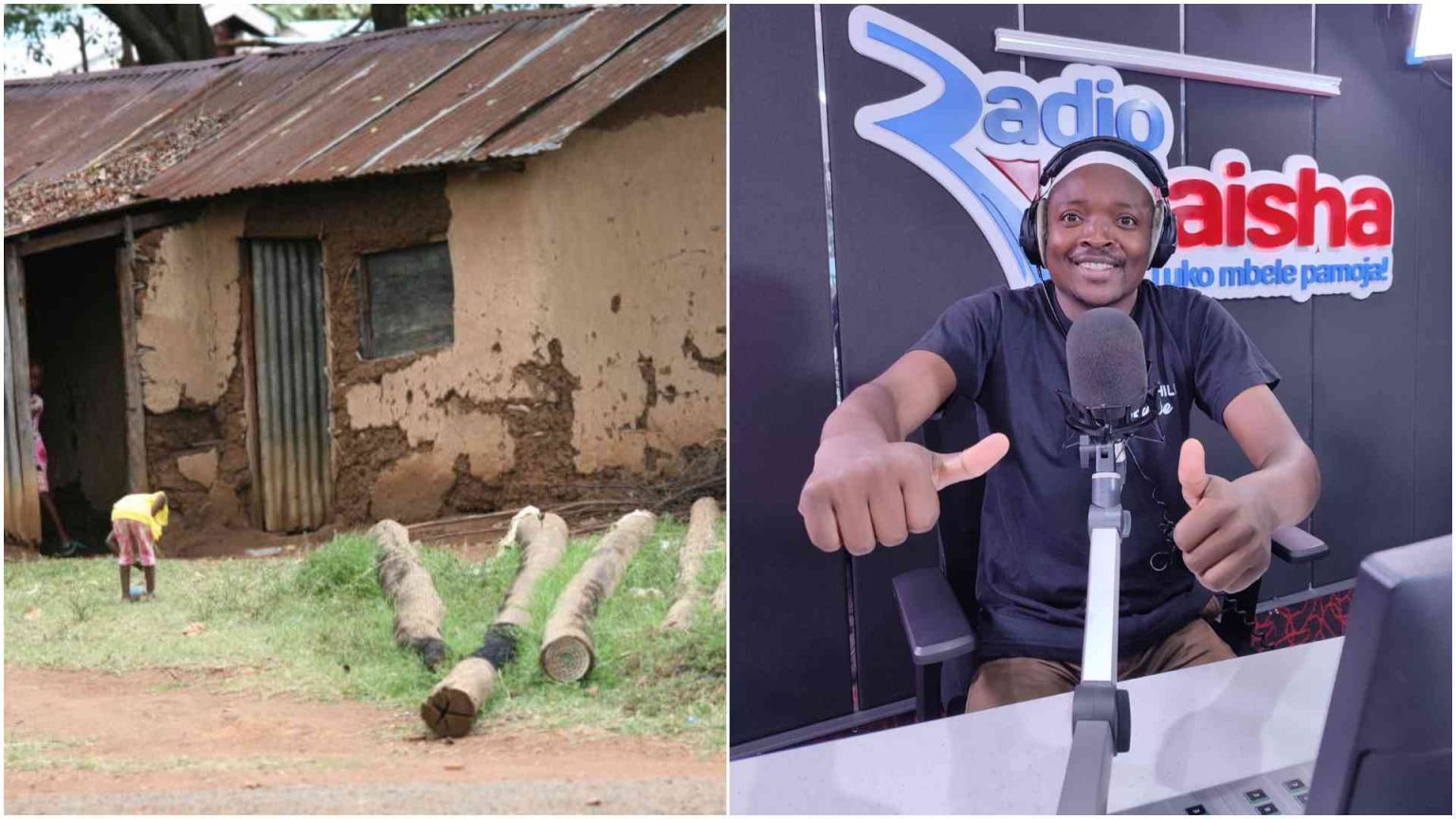For many it’s just the voice they listen to daily on radio. Tell us, who is Mulama?
I am a Kiswahili journalist, poet, and former teacher whose career journey has been shaped by both resilience and passion. I was born in Nandi Hills, raised in Eldoret, and I am Luhya from Kakamega. Initially, I trained as a teacher but financial challenges forced me to shift paths, and that detour led me into the world of media. Today, I am a presenter and newsreader at Radio Maisha. My story is one of perseverance and proof that with dedication, dreams come true.
Where and what did you study in university or college?
In 2013, I joined Mount Kenya University in Eldoret for a Bachelor of Education (Arts), studying History and Kiswahili. However, financial difficulties interrupted my studies, and I had to defer several sessions. That setback, though painful, proved transformative. It redirected me to Journalism and Mass Communication, where I pursued a diploma.
Even though teaching was my first passion, I don’t regret the shift because, every Saturday on Nuru ya Lugha, I still feel like I am in a classroom, only that my learners are millions of listeners across the country.
What was your favourite and worst unit while on campus?
My favourite unit was Media Law. I have always been fascinated by history and legal matters, and with a gifted lecturer like Millicent Makokha, the subject came alive in a way that was both practical and engaging. My worst unit was Computer Applications.
Growing up in a religious background, I believed that computers were tied to the number 666 and might lure me into satanic influence. I avoided them. Today, the irony makes me laugh because I now rely on computers daily, as indispensable as oxygen.
Best/worst lecturer?
The best lecturer for me was Millicent Makokha, who taught Media Law. She made the subject practical, engaging and enjoyable. My worst experience was with Sound Production, not because the unit itself was bad, but because I was once sent out for being five minutes late. That day, I had struggled through the mud of Cherunya in Eldoret, only to be chased from class. Later on, I met the same lecturer, who was then working at KBC, while I was at Radio Maisha. We had a good laugh about the incident.
How was campus life generally?
Campus life was tough. I had to defer sessions several times because my parents were jobless back home in Kakamega after being affected by the 2007 post-election clashes in Nandi Hills.
To survive, I depended on reciting Kiswahili poems at events, doing plumbing and mjengo jobs to raise rent and food. Sometimes my parents would even sell trees at home just to send me something small. That experience opened my eyes to the reality of lacking money, but it also shaped me into who I am today. Resilient.
How did you make money while on campus?
Campus life was generally tough. I remember my “nyumba ya matope” being locked because I couldn’t raise Sh150 for rent, while many of my fellow comrades were living in hostels, paying up to Sh4,000 a month.
How was dating on campus?
Honestly, I never dated on campus. Life was tough, and I had to focus on survival and my studies. I tried showing interest a few times, but the requests for money, like paying for hair, lunch, or taking someone out, made dating feel too expensive for me to afford at that time.
What do you think of campus relationships?
Campus relationships can be good if handled wisely, because they teach responsibility, partnership, and sometimes even grow into lifelong unions.
Where did you hang out on weekends?
Most of my weekends were spent in the college library or the Student Centre. While others went out to hang out or party, the library became my favourite place, quiet, resourceful and kept me focused on my goals.
Classmates you will never forget?
Francisco Saviour. One classmate I will never forget is Francisco Saviour Kituyi. He stood out in so many ways, and the memories we shared on campus, both the struggles and the fun moments, will always stay with me
How did you get into radio? How has your experience been?
I started reciting poems on Nuru ya Lugha in 2013 at Radio Maisha while I was still a student. In May 2017, Radio Maisha advertised for regional reporters. I applied and was employed as a correspondent on 17 November that same year.
Talk to us on your Show Nuru ya lugha. How did it start, and what do you aim at?
When I took over Nuru ya Lugha, some people doubted me because I was replacing the celebrated Hassan Mwana wa Ali. But I believed in myself. I had hosted a similar campus show, Dimbwi la Elimu. Thanks to Tom Japanni, Head of Radio then and Anthony Ndiema, Programmes Controller then, for their encouragement. Deep down, I knew I couldn’t do the same things Hassan was doing. I believed I could make a few mistakes, learn through feedback and research, and grow into the role.
We see you very big in celebrating Kiswahili.
Kiswahili is more than just a language. It is a tool for expression, culture, and connection. Through Nuru ya Lugha, Tamasha ya Ulimbwende wa Kiswahili, Nuru Shuleni events, poetry, and storytelling, I aim to celebrate its richness and beauty of the language.
Any final words to the youth and many out there who would like to do radio?
To the youth and anyone who dreams of a radio career, I would say, believe in yourself and be patient. Start where you are, work hard, and never underestimate the power of persistence. Learn, practice, and stay true to your voice.
